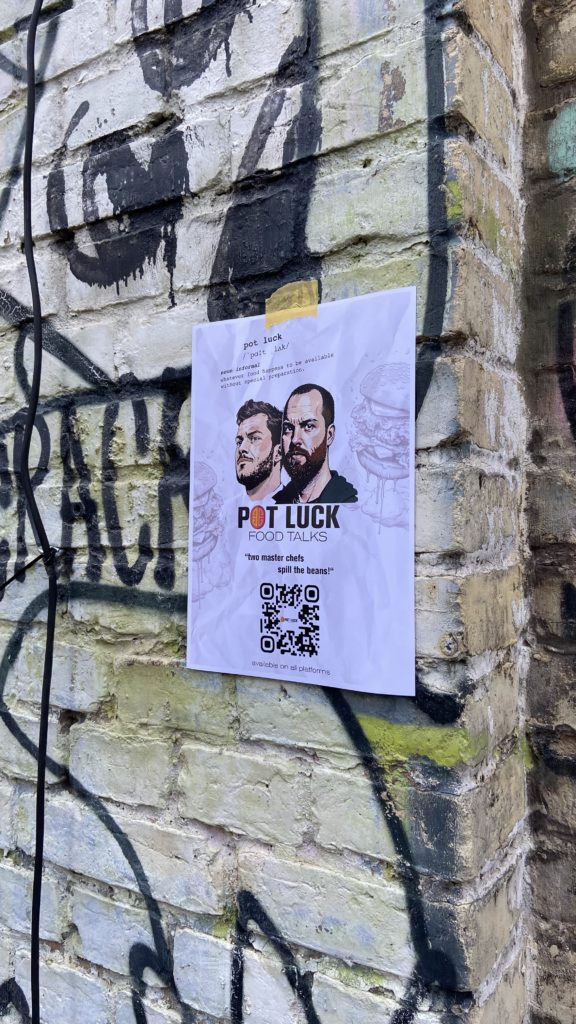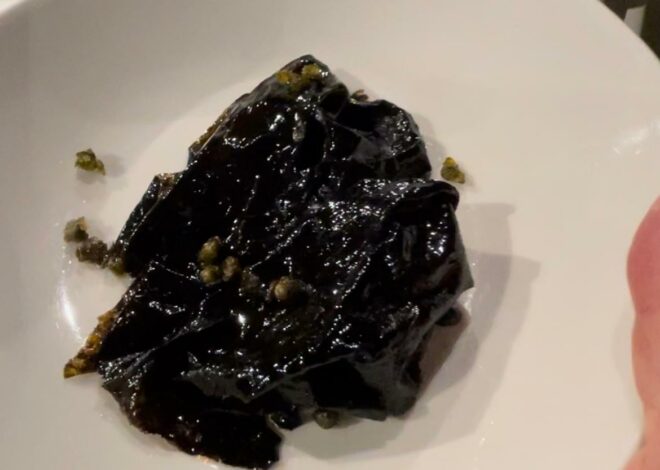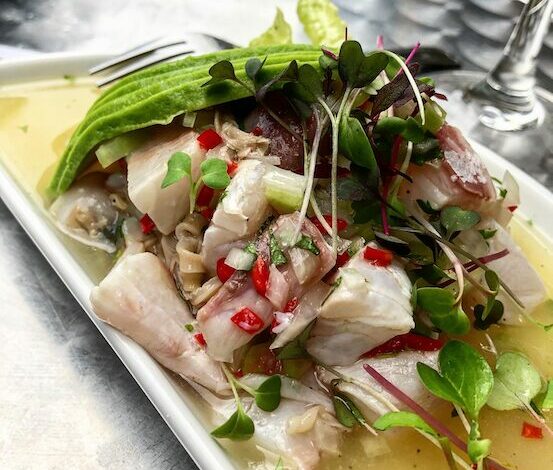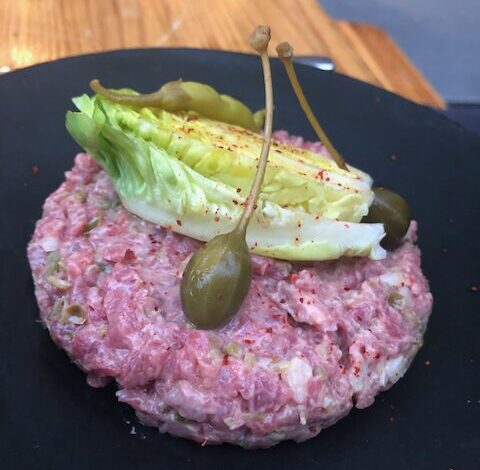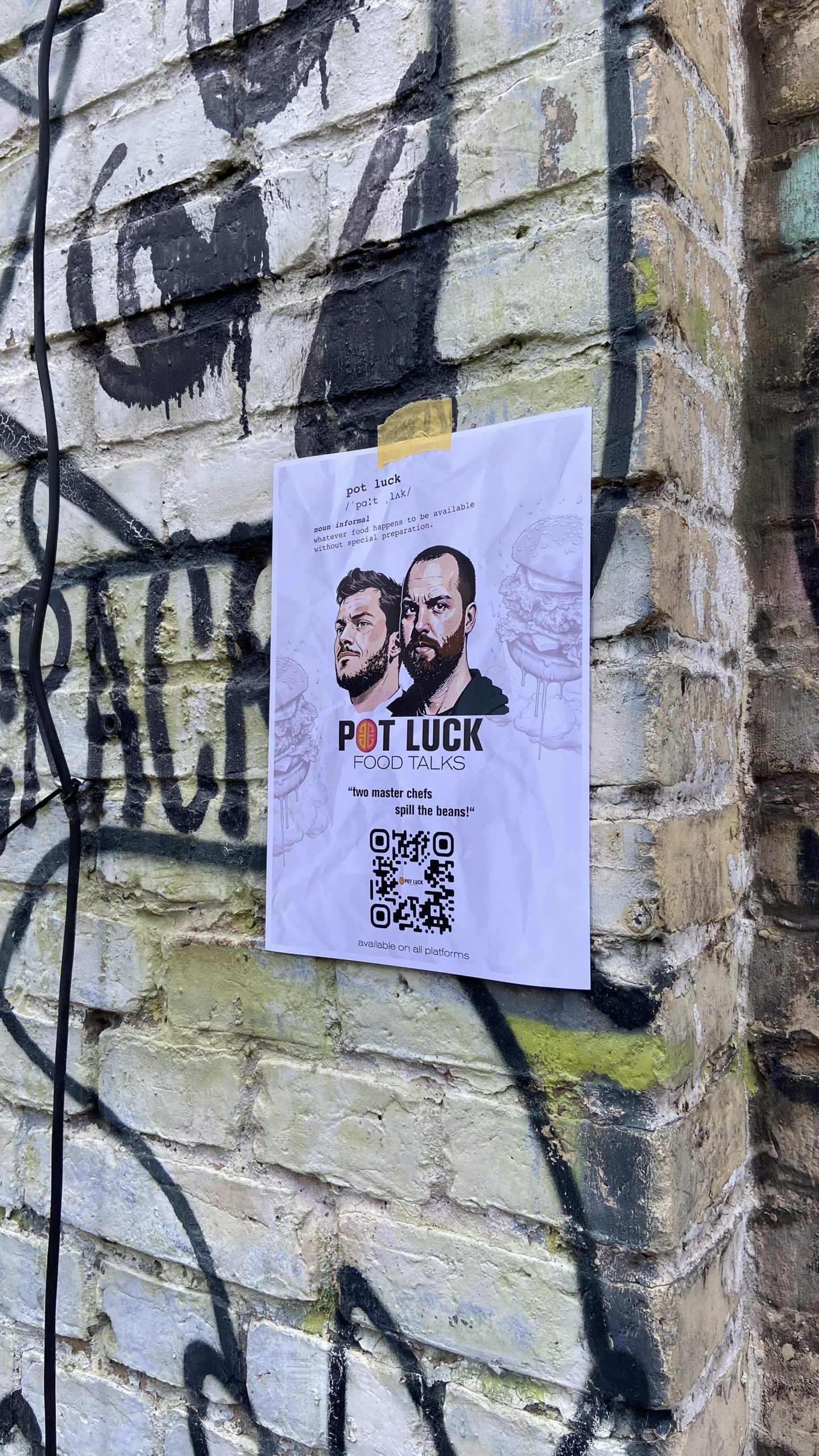
Pot Luck on a wall in Berlin
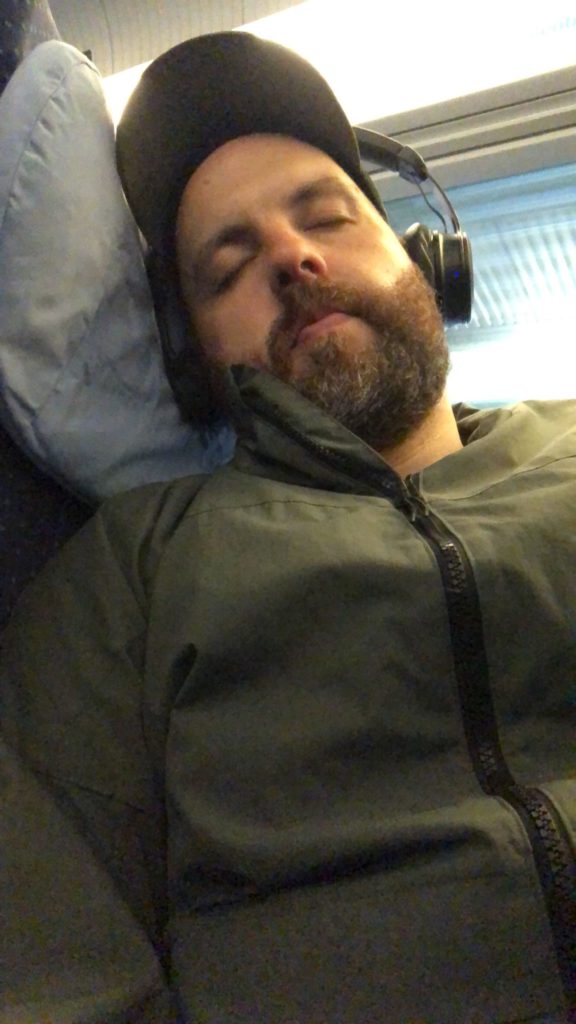
The plan was to get to Berlin by 11 PM so we could be on stage and start our show at 11:30 AM. But the airline canceled my flight. I had to sleep for just 3 hours in a cheap hotel on Schillerstrasse in Munich, surrounded by brothels, in order to catch a train to Berlin on time. I couldn’t get consistent sleep on the train. I watched myself crawl along the floor of an underground techno rat hole in Berlin. That was my dream; that was my nightmare. Crawling, slithering, along the edge of a seedy nightclub… and surviving.
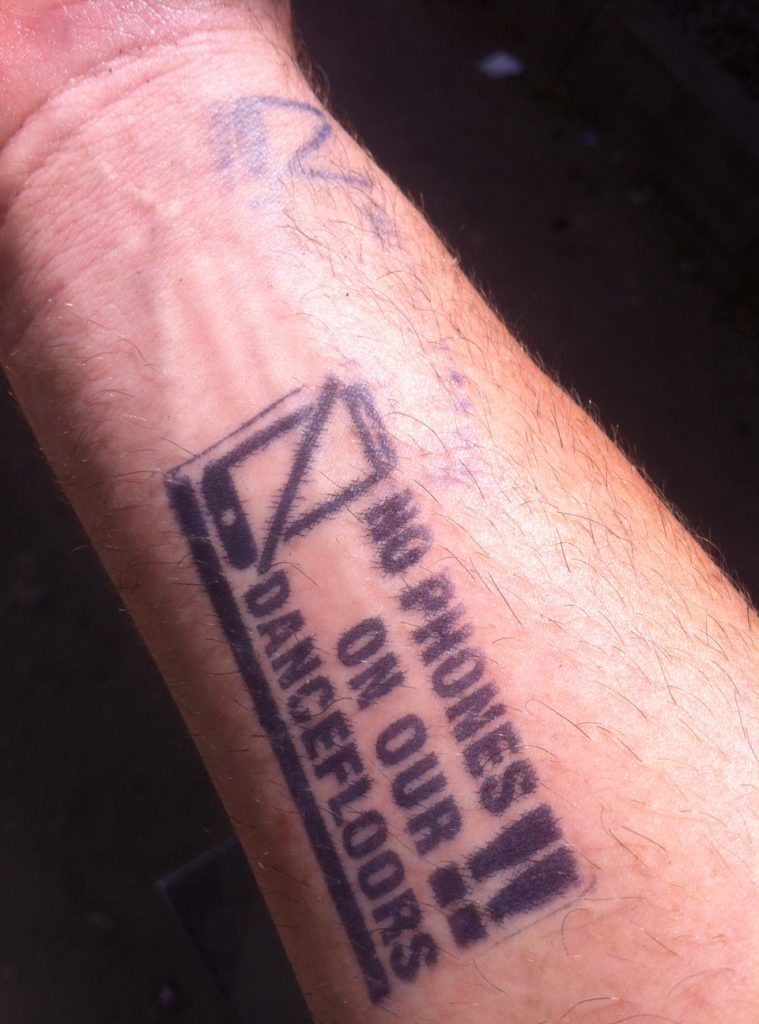
Returning to Berlin has always been an intense experience for me, a museum of shame. I spent most of my twenties here, this city chewed me up and spit me out. But it’s our podcast’s birthday, and it’s the first time the three of us are meeting in over 10 years. The whole crew, the creators of “Pot Luck Food Talks.”
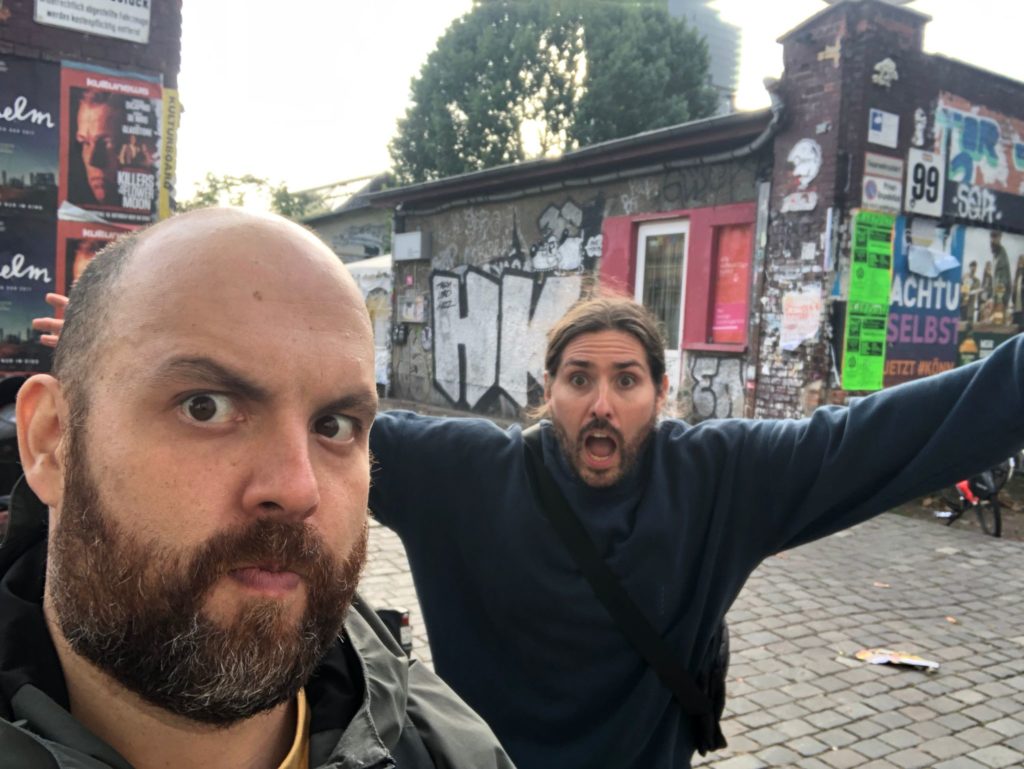
I’ve known Xander since 1994. I first came to Berlin in 2007 with the idea of opening a pizzeria with him, but I left in 2015 without having done it. Xander studied film, produced podcasts, and eventually specialized in food commercials, where he’s now considered one of the best tabletop directors in the world. We’ve written scripts, made short films, brainstormed business ideas, and even dabbled in science fiction novels. Perhaps our most tangible creation was a logo we designed 15 years ago that’s still in use. The concept was “moist creation,” a combination of a lightbulb and a sprayer.

Our brainstorming process was long and filled with heated discussions, but it forged an almost telepathic creative dialogue that I haven’t found with anyone else, except maybe Phil.
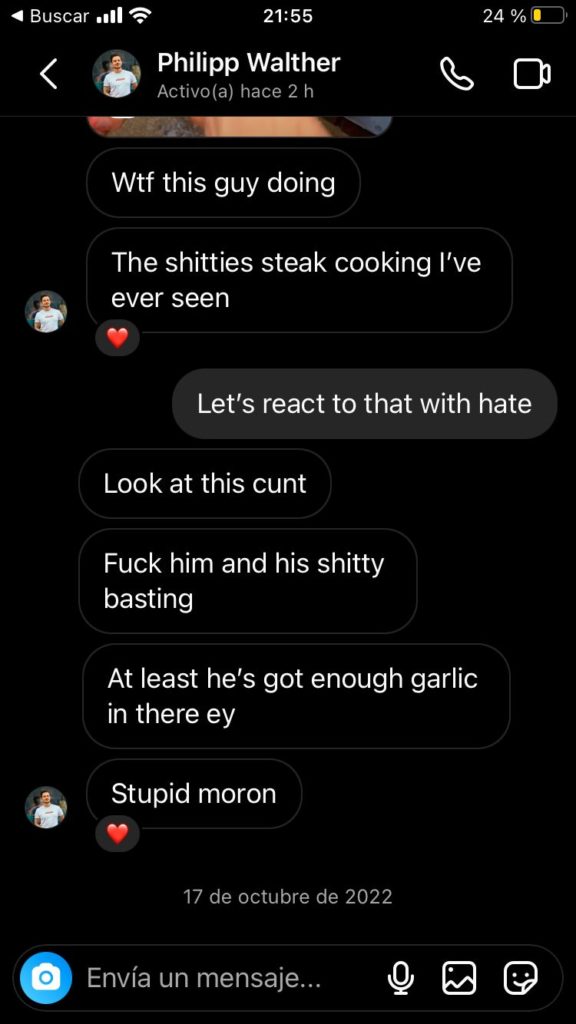
Phil’s the best, I don’t care. I met Phil in a tough, chauvinistic French restaurant around 2010. He was only 17 but could run a kitchen station on his own. On our days off, we’d gather to cook eccentric dishes like braised pork head in apple juice, Szechuan-style chard, and the fine art of making a perfectly executed omelette or a spot-on beurre blanc sauce. We’d explore sophisticated cocktails at speakeasy bars, exchange cookbooks by top chefs, and talk about nothing but high culinary snobbery. Phil’s nightlife adventures often led to the risk of ending up in the hospital, behind bars, or in rehab every weekend. Eventually, he hit a roadblock, and I helped him secure a stage at Mugaritz, which led to connections in Tokyo, Mexico, London, and finally San Sebastian, where our paths crossed again.
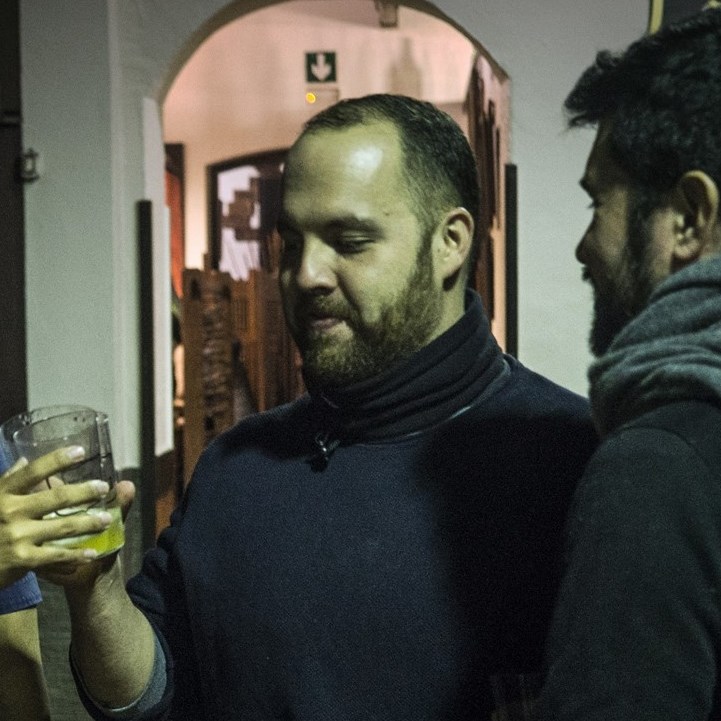
As for me, after working in all sorts of restaurants for over a decade, I ventured into the world of culinary labs. This eventually led to a research position at the Basque Culinary Center, bringing me back to San Sebastian, the city where I had my first international experience back in 2005, precisely at Mugaritz. San Sebastian is a culinary hub, so I started conducting gastronomic tours. At one point, I called Xander and told him we should find a way to travel and create similar culinary learning experiences in different cities worldwide—documented gastronomic tours with chefs, forming groups and taking them on culinary journeys.
“Hey, I could be your producer, but I need something to work with, something to show.”
“Phil and I can talk about food or anything else for hours.”
“Ok. let’s do that. You need to record 21 episodes, not 20. 21.”
I called Phil.
“Hey, what do you think about starting a podcast? We pick a topic, have a chat, and talk about anything.”
“Sounds good. What should we call it? How about ‘Potluck’? Everyone brings a topic, and we discuss it.”
The next day, I quickly made a logo using an online service for 5 EUR.
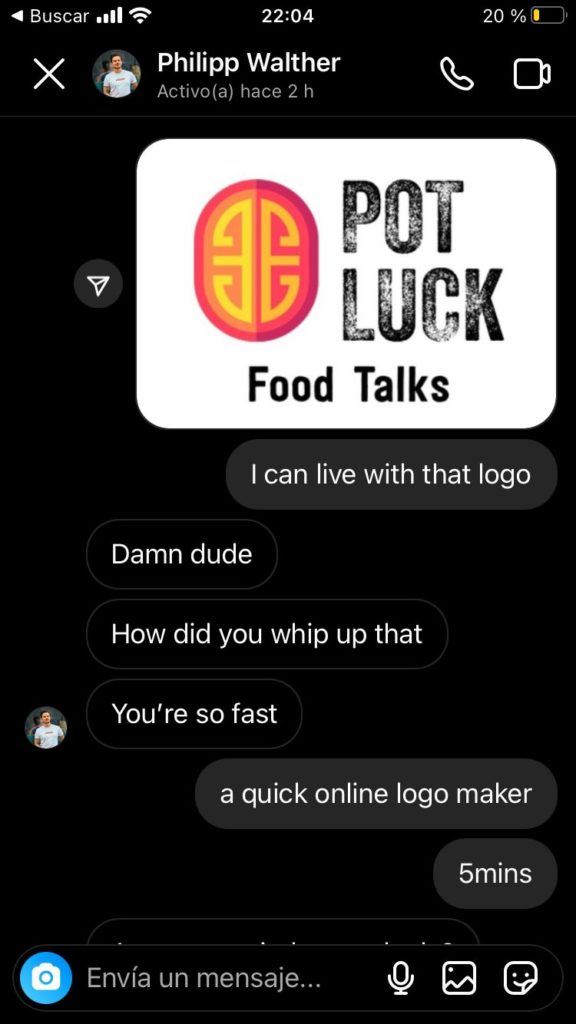
“Wow, that’s great. How did you make a logo so fast? Just one thing, though. The name was ‘Potluck,’ not ‘Pot Luck.'”
I looked up the difference between “pot luck” and “potluck,” and it worked perfectly. It means “anything” or “whatever” just like our plan – to talk about anything as long as there’s food involved.
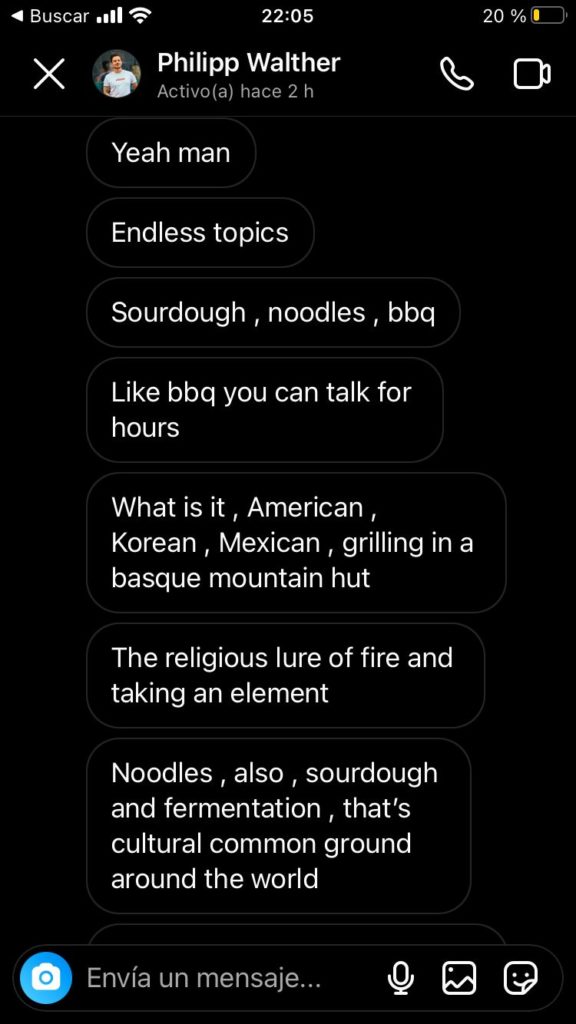
“Yeah, man. We can talk for hours about anything, like bread. We can go on for hours about bread, or grilling. I could talk for hours about grilling, not just from a culinary perspective but also about the spiritual connection between fire, humans, and their surroundings.”
“Let’s do the first one. What should we talk about?”
“How about Spanish omelets?”
Two days later, we recorded the first episode, on Spanish omelets. It was a Zoom call.
“Shouldn’t we have an intro or something?” Phil asked as we discussed the show.
And later, “Shouldn’t we have a closing moment?”
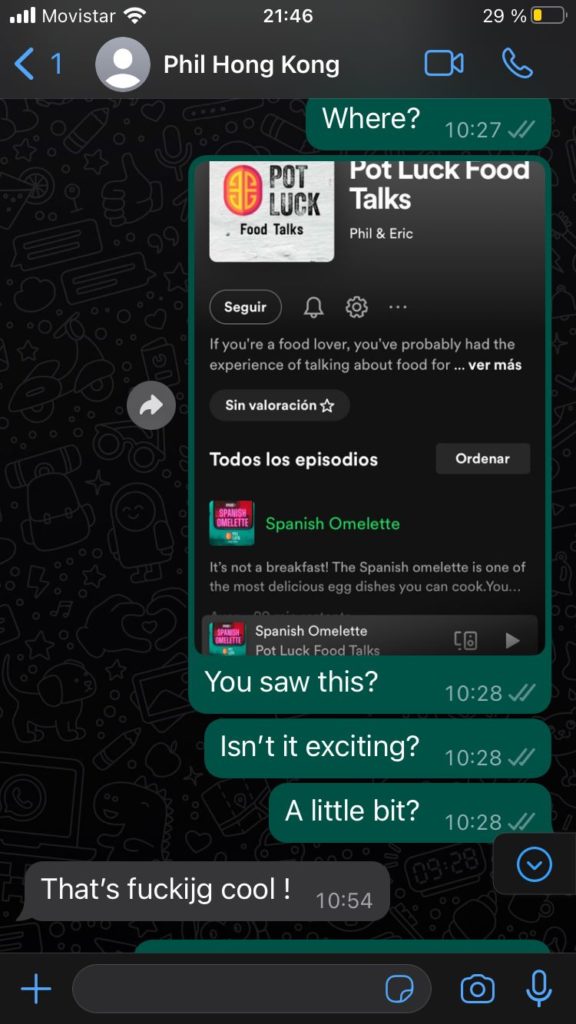
Potluck is known for casual, honest, and relaxed conversations about food through our lenses.
Everything was freestyled, from the idea of the show to the guests. We aimed to discuss things that didn’t require research or preparation, topics we knew well. The intro, the way we wrapped things up without an outro – all these details shaped the show’s identity. At times, it became challenging to coordinate. Phil changed locations three times this year, from Dubai to Hong Kong and back to Berlin. I had my own travel and commitments.

At one point, I started interviewing third parties to cover for Phil’s absences. Xander, the invisible hand, edited, coordinated, and guided us conceptually, occasionally cracking the whip to keep us responsible and sane. Our Rick Rubin.
Fifty episodes later, there I was, on a train back to Berlin, celebrating our anniversary with a live show. I missed my flight, was running late, and couldn’t help with the prep cooking. Fortunately, my cousin, who had worked in an Amsterdam restaurant was assisting Phil in the kitchen. I arrived exhausted at Hermmanstr. but managed to finish the slides for some visuals in our show.
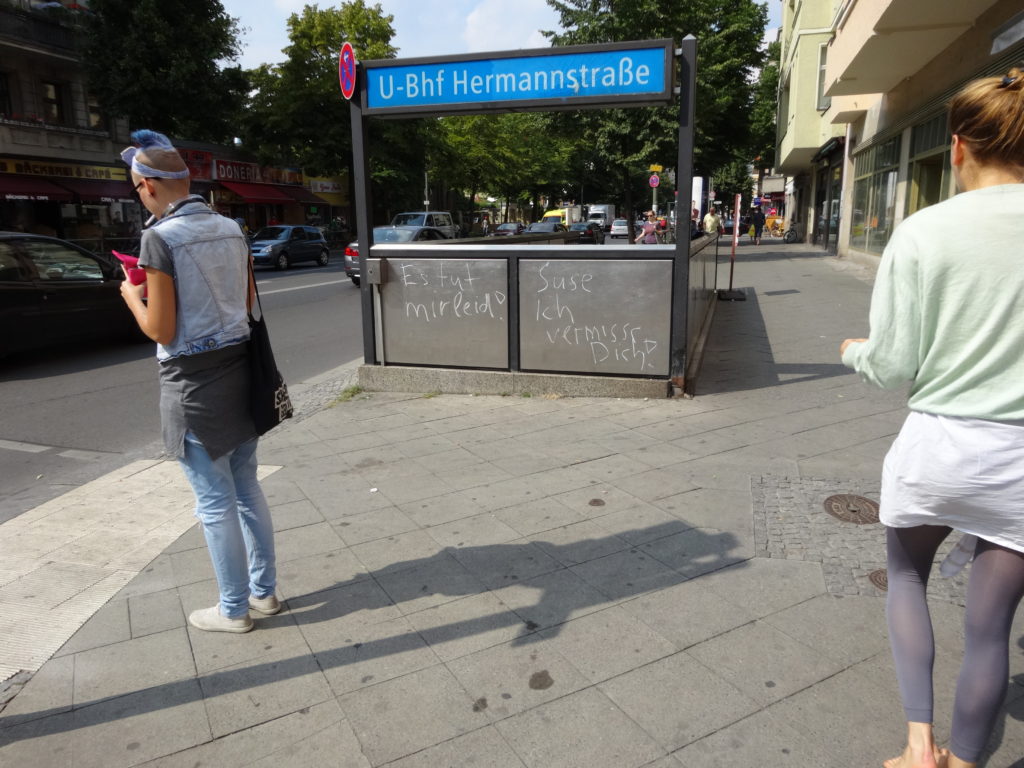
I worked on them on the train with a bad connection. On the menu that day: a fried chicken sandwich and a vegan alternative, mapo tofu. Phil was a chicken maestro, as he once demonstrated with yakitori on a homemade grill during our time together in San Sebastián. Since his time in Mexico, he had been working with spices in a way I hadn’t seen before.
I called Xander.
“Hey, tell me, how’s everything going?”
“On Tuesday, we went to Metro, the big market. We spent about four hours shopping for chicken, panko breadcrumbs, pickles, and more. Halfway through, the Podfest organization told us we’d be the only ones serving food, so we went back and tripled our purchases. Then we went to an Asian supermarket. Phil panicked because they didn’t have his favorite seasoning, Lao Gan Ma, but he eventually found it and calmed down. We started cooking at 10 AM. We bought chicken thighs, and when I briefly left the kitchen, I returned to find Phil had cleaned them all, removing unnecessary skin and pieces for the fried chicken. He marinated them in buttermilk, garlic, black pepper, salt, lemon juice, and lemon zest for four days. We had some dried arbol chilies I brought from Mexico. Phil toasted them and added them to a spice mix with Szechuan pepper, salt, sugar, and togarashi. We didn’t have a way to grind them, so we found a small coffee grinder and turned it all into a powder to sprinkle on the fried chicken. For the veggies, we marinated tofu in ma po tofu sauce. We also made a mayo with my green sauce, vinegar, salt, black pepper, lemon, and shiso.”
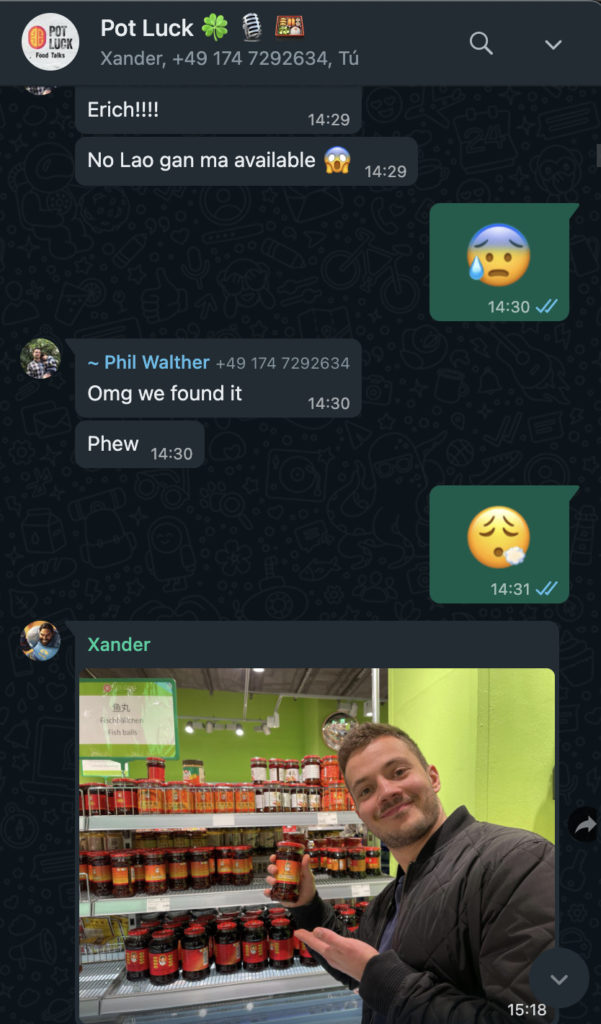
I hadn’t had time for updates; I had a lot of work before traveling. On top of that, I was losing my voice. We were going to talk for an hour about sandwiches, just sandwiches. I had no doubt we could do it; Phil and I were telepathic. We met at Hermmanstr. and went to the Podfest venue at RAW Tempel, a place that stirred the darkest corners of my memory. I tried to distract myself.
“Tell me about the burger you’re going to serve.”
Over the years, Phil and I had flirted with various restaurant ideas. My favorite was one called Crudo – the Dao of Crew. Crudo means raw. The idea was to create a high-end food bar where everything would be served raw, tar tar steaks, tiraditos, crudos, ceviches with ODB samples of “oh baby I like it raw” playing in the background. Another one was Nejimaki, a ramen and sake bar with vintage TVs showing sumo wrestling. Or a Nordic ceviche bar experimenting with seaweed vinegars. Our conversations always revolved around these crazy ideas.
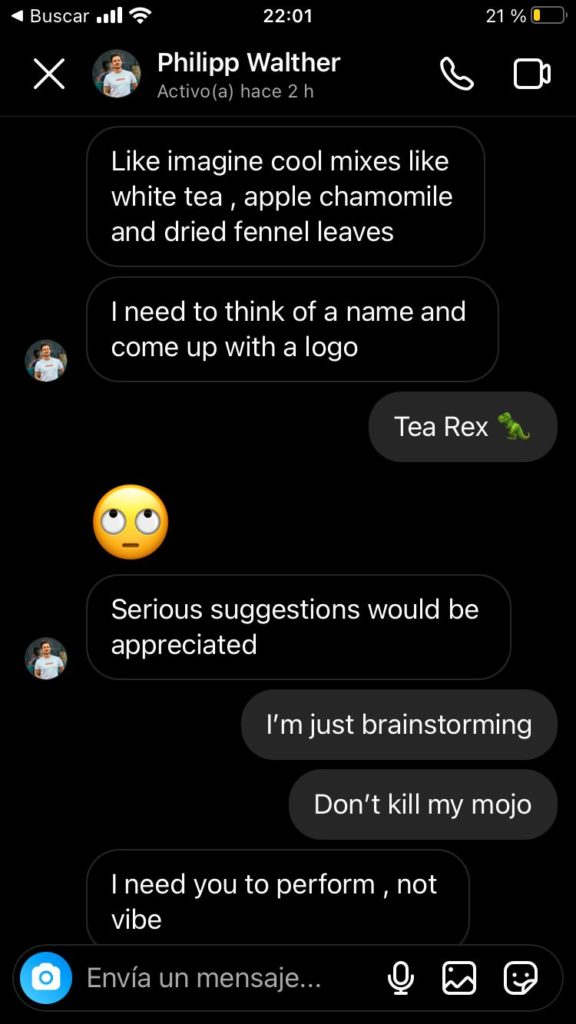
Phil explained the service as follow:
“The plan is simple. Toast the bread, fry the chicken. Butter lettuce. Secret mayo. Lao Gan Ma. The key is that the chicken gets fried, rests, and then gets fried again. After soaking in a buttermilk brine, with ‘the good stuff’ (MSG) the buttermilk and lemon make it juicy, super juicy, like you can squeeze juice out of it with your fist. It’s amazing. You’ll see.”
When I arrived at the event venue, I had no voice. I had to take throat lozenges, drink honey ginger tea, and not speak until the presentation, where I could barely regain my voice. The show was a success, we flowed naturally, and people gave us comments we didn’t expect.

“I didn’t know you could talk for an hour about food and make it really entertaining and educational.”
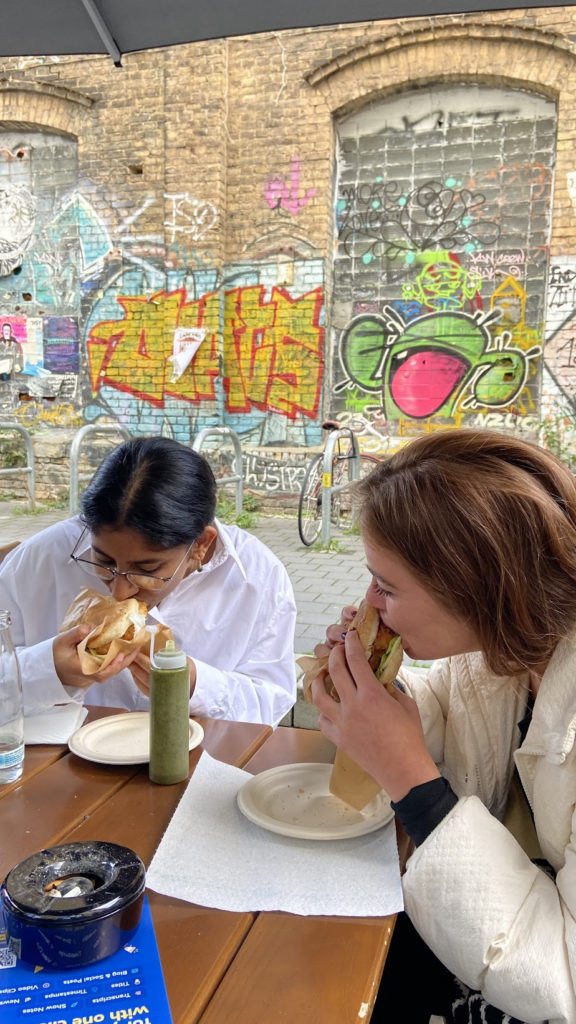
As we left, we handed out sandwiches to everyone at the event. Once again, we saved the day, just in the nick of time. We survived, like in my nightmare. This city is hungry for more, I can tell, I have seen its true face.
